Finding the right camper can be a long and arduous process. So, this issue, the Camper Australia team thought it time to help you in your search by highlighting some of the important things to consider — things that might end up saving some of your hard-earned cash.
At the end of this article, you’ll be able to make a checklist that you can tick off when on the hunt at your perfect camper.
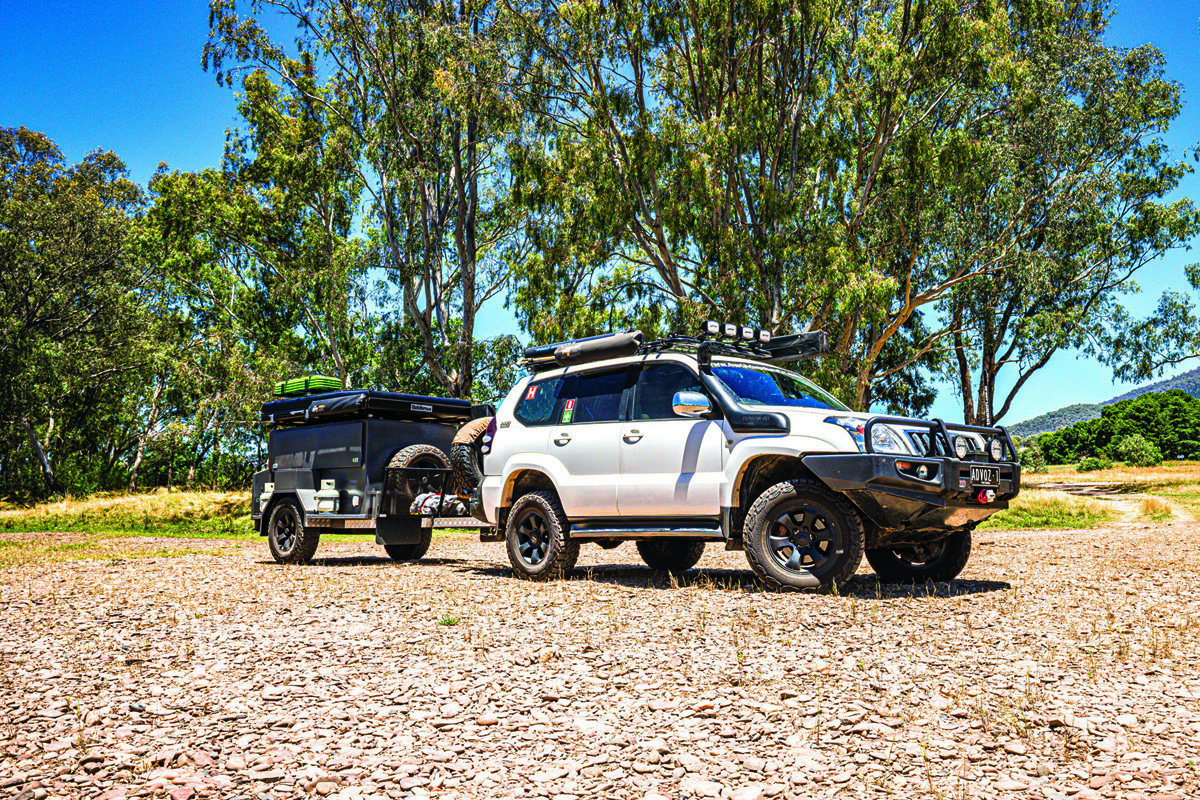


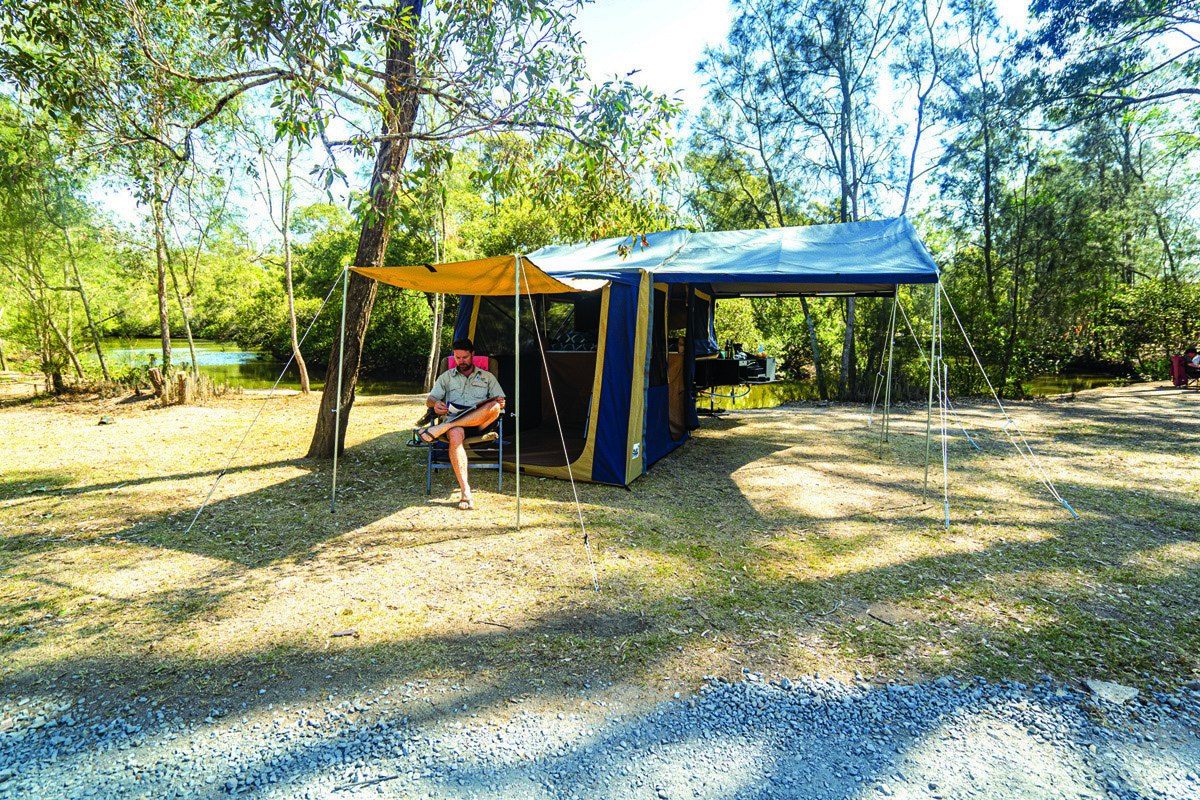
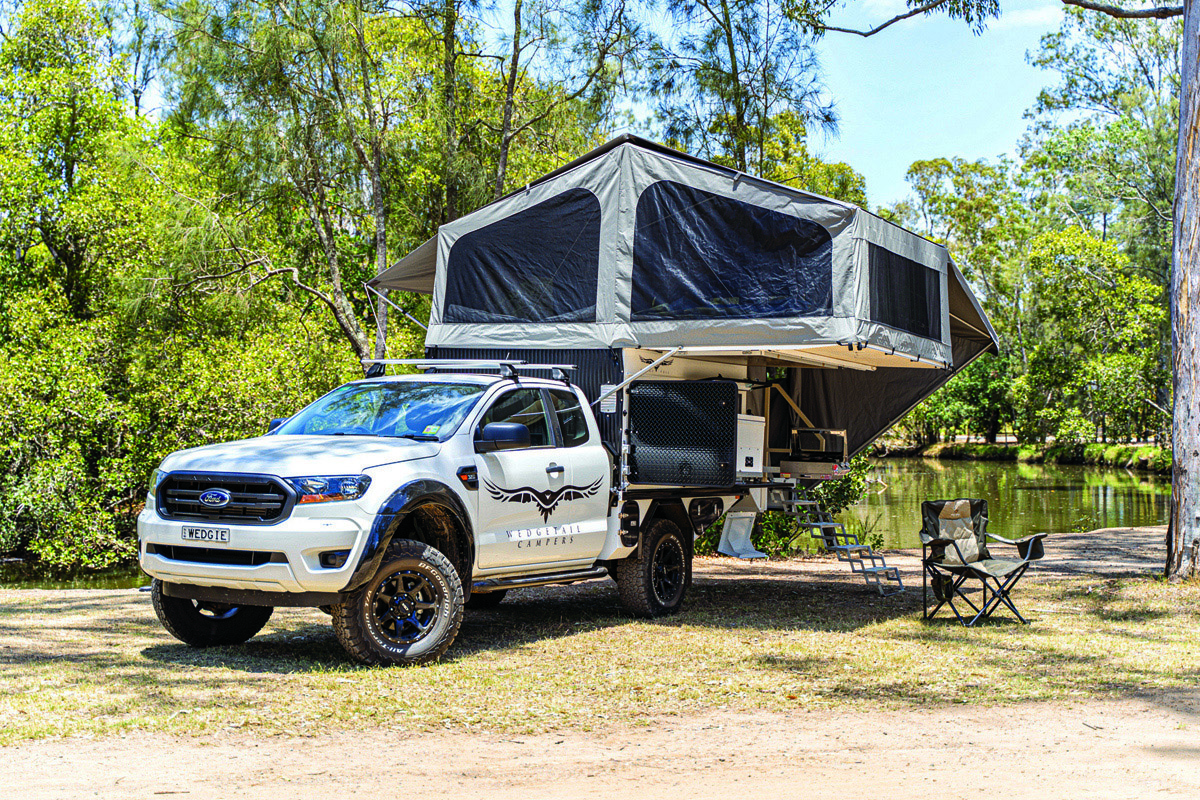
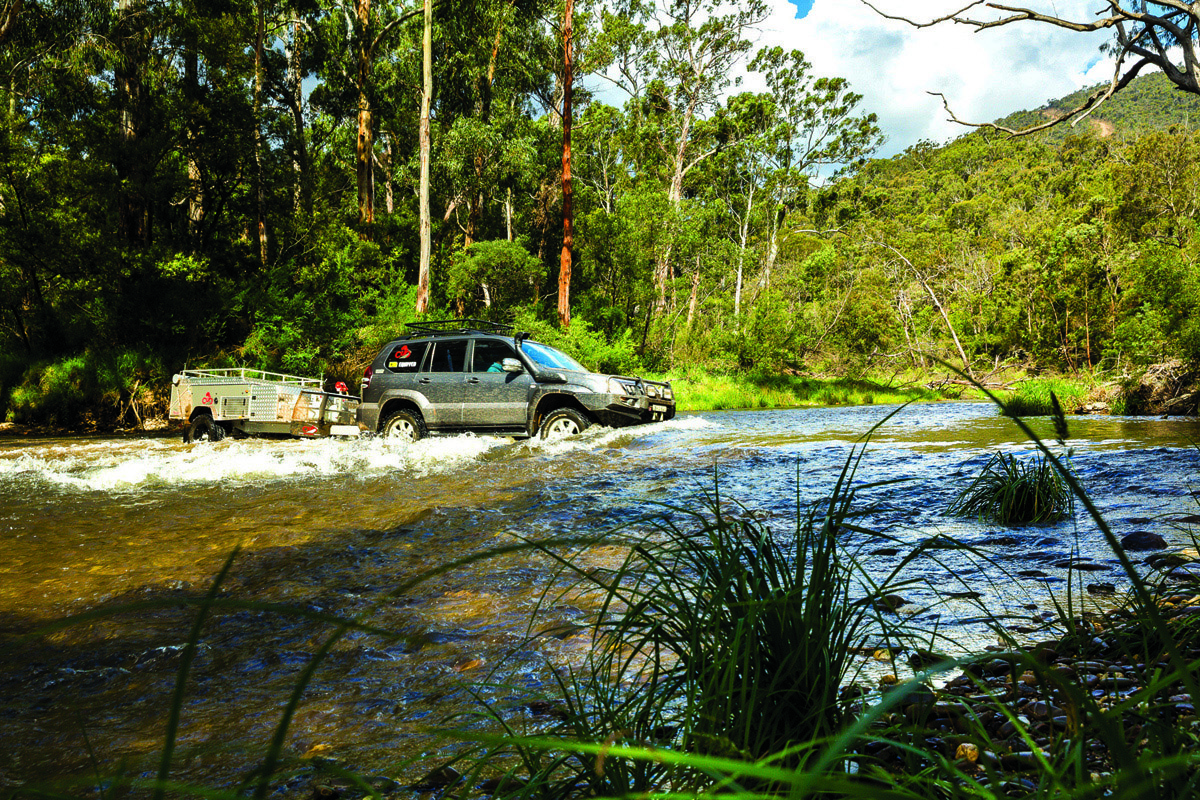
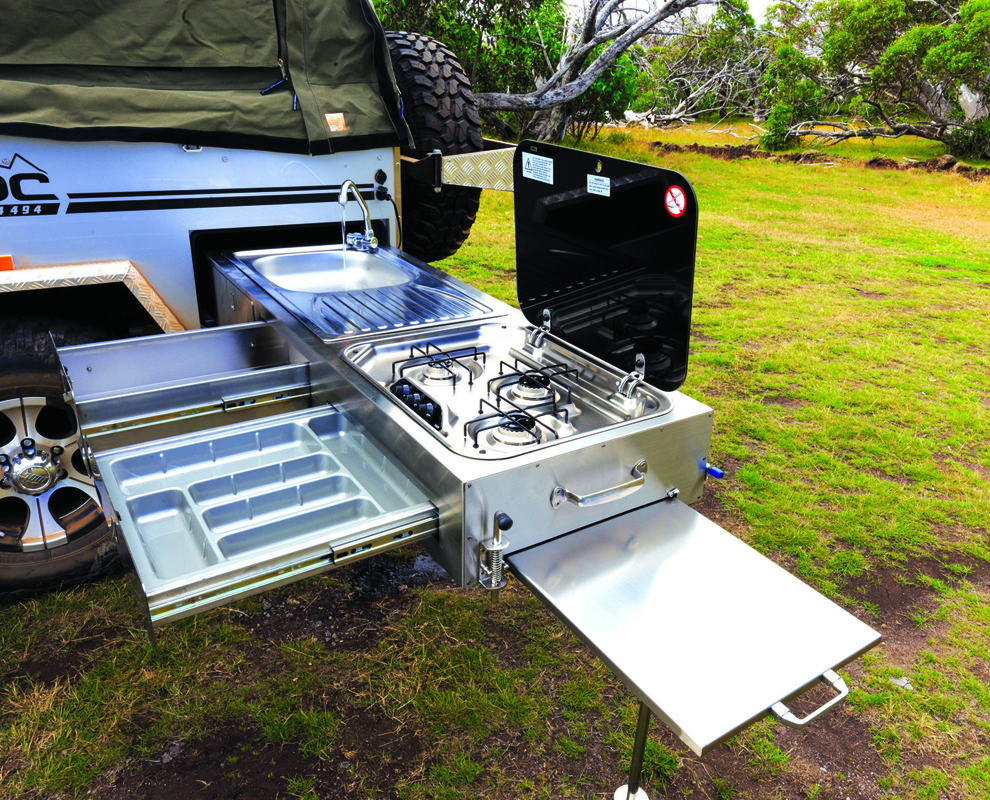
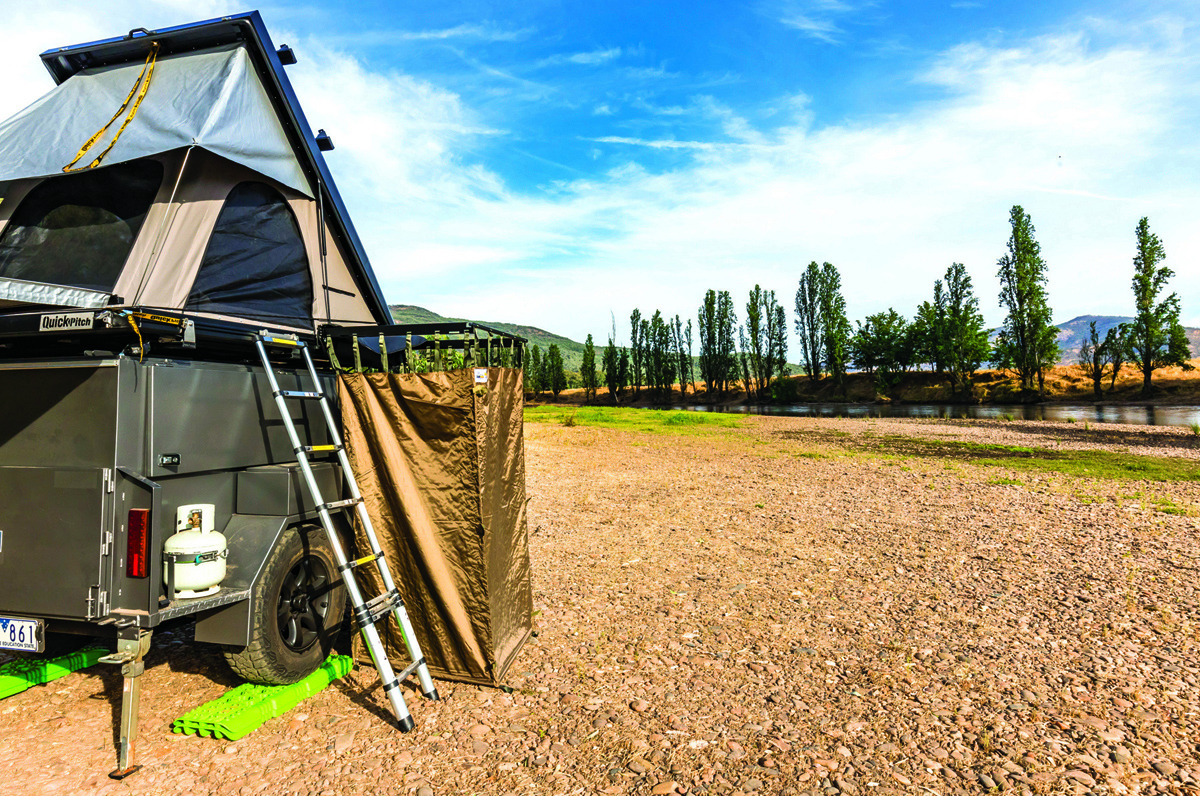
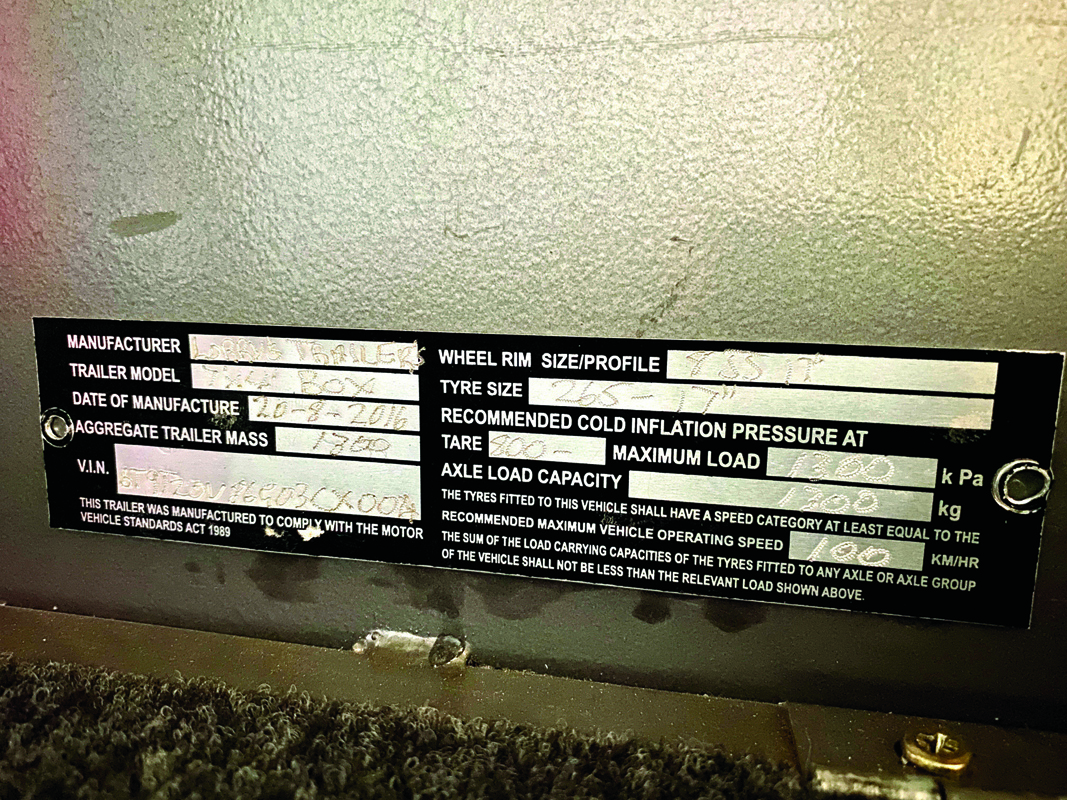
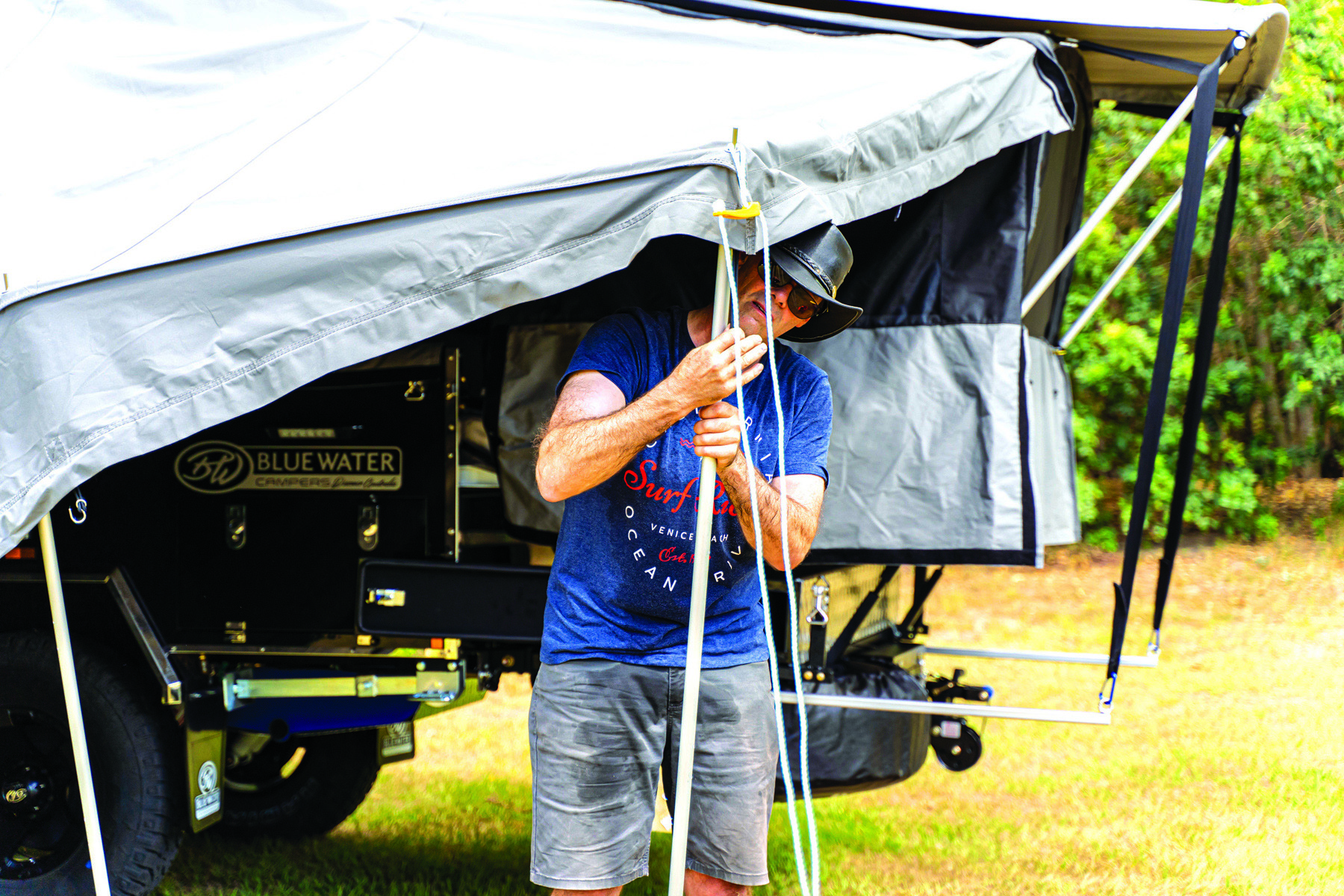
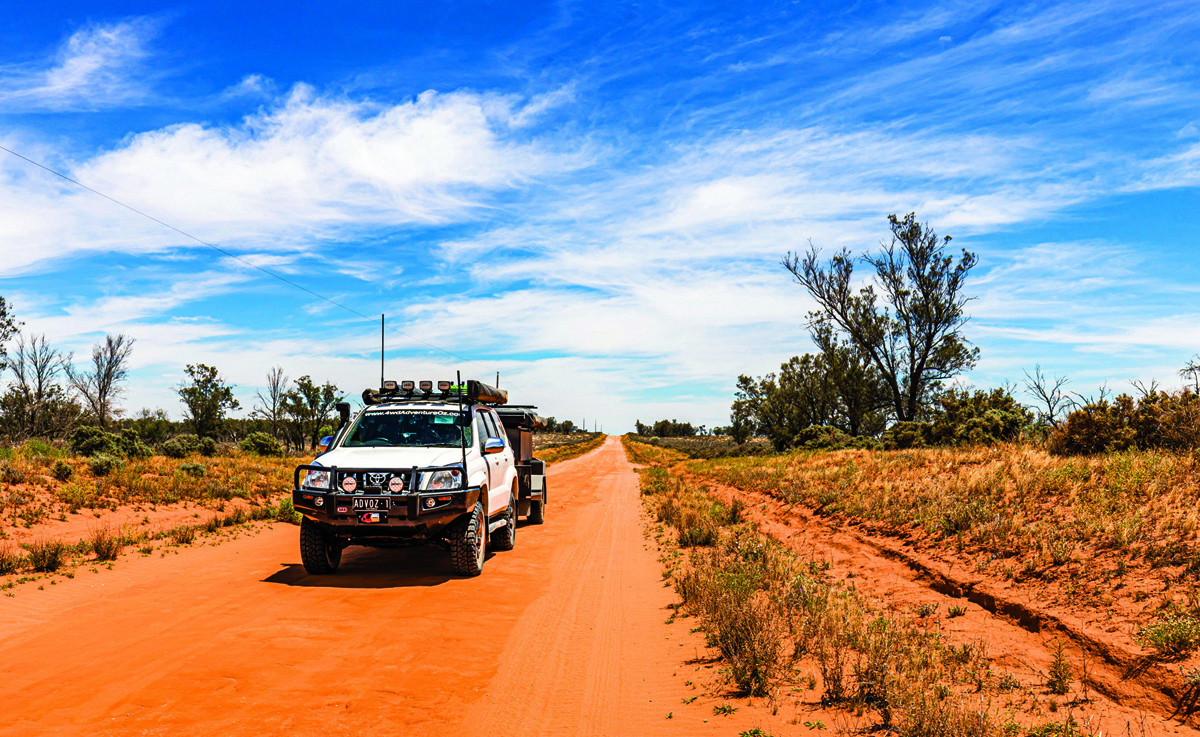
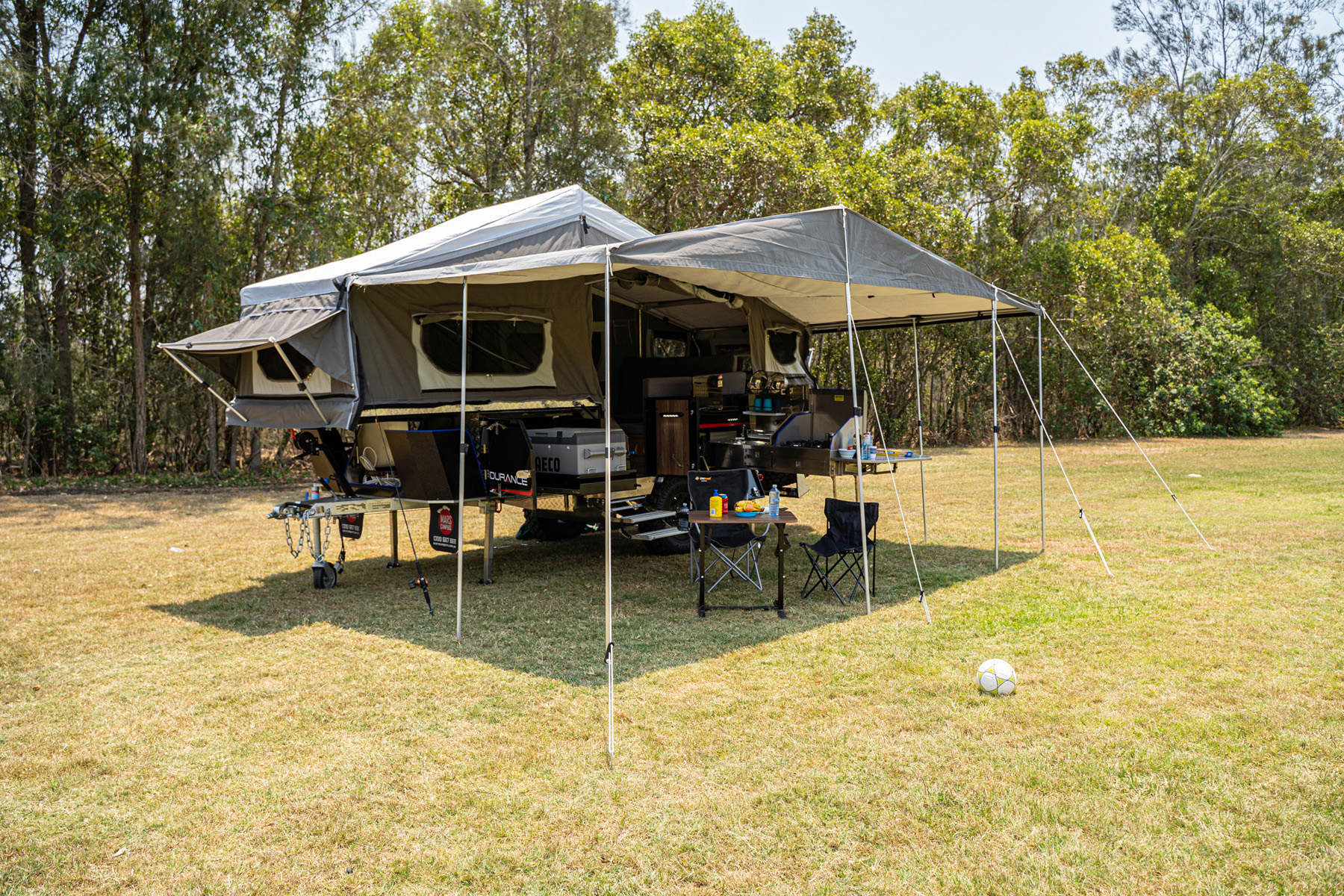
IS YOUR VEHICLE UP TO THE TASK?
One of the first things you should investigate before searching for your ideal camper is your vehicle’s towing capacity and ball weight. The towing capacity of a vehicle such as a family sedan or small SUV will be between 1500kg and 2100kg, a medium-sized 4WD from 2500kg to 3000kg and a large 4WD or dual cab ute up to 3500kg. The best way to find this information is by checking the manufacturer's handbook.
Why is this so important? If you have an accident while towing above the vehicle’s capacity, your insurance company won’t touch you. If pulled over at a weigh station by the police or roads department and you are over your vehicle’s capacity, expect to be fined and asked to lose the extra weight before being allowed to proceed on your travels
It is important that your tow vehicle also has a suitable tow bar and hitch receiver that is rated to the vehicle’s towing capacity. It will also need to have points to attach the towing chains and a wired connector socket that suits the camper plug and finally, an electric brake controller (a requirement for any camper with an ATM over 750kg).
WHAT IS YOUR BUDGET?
Buying a camper is a big investment, so it’s good practice to decide on a budget before you start looking for your ideal camper. A lot will depend on what features you’re after, as well as the accessories and style of camper. The quality of a cheap camper may not compare to a more expensive one and a new camper will cost more than a second-hand unit (in most cases). Allowing a little wiggle room in your budget will widen the market but having a maximum limit allows you to skip campers priced beyond that figure.
Typically, the more you spend, the better the build, durability, accessories and facilities. However, after looking at a range of campers, you’ll get a more accurate sense of the true value of things, which can lead to bargains when talking to salespeople. In the end, the camper that fits within your budget, while offering all the important needs and some bonus wants, is out there waiting for you.
WHAT TYPE OF CAMPER ARE YOU LOOKING FOR?
Click here for the latest new and used camper trailers for sale
Another important decision that needs to be made before purchasing your dream camper is what type are you looking for?
- Soft floor campers fold out to the side of the trailer to provide the largest floorplan, with the bed remaining on top of the trailer. The PVC floor then rests on the ground and will need to be pegged down in most instances. This type of camper takes longer to set up and pack down and is better suited to families and those with a smaller budget.
- A hard floor camper folds to the rear of the camper and the underside of the roof becomes the floor. They are simple and quick to set up and pack down but offer reduced internal storage and floor space to a soft floor camper and setting up the awning can be time consuming.
- Forward fold/dual fold campers offer the best in terms of living space, but a lack of storage can be an issue. With a forward fold, the lid opens to the front of the camper, over the A-frame and the base is a lounge setting come dining room or second bedroom. The main bed rests upon the camper’s lid. On a dual fold camper, the lid opens forward and back to offer two permanent bedrooms, plus the lounge/dining room. When it comes to awnings, this style of camper takes the most amount of time and poles to set up, unless it has air beam technology like OPUS camper trailers.
- Hybrid campers are similar to a caravan in that they have a hard shell with permanent bedroom, dinette and possible ensuite facilities as well as options for heating and cooling. The external accessories include a pull-out kitchen and fridge and are by far the quickest and simplest to set up and pack down.
- A slide-on camper is a great option if your vehicle is a ute. They are designed to fit on both dual cab and single cab utes and can either be a complete hard shell, a side fold or pop-top with canvas. The internals are usually the bed and a micro dinette with minimal storage while the external storage areas include the pantry and kitchen.
WHERE WILL YOU GO?
If all you want to do is travel the bitumen highways and byways, an on-road camper setup may be all you’ll need. However, if your camper needs to survive terrain over and above this, you’ll need to purchase one that can match the challenges your intended destinations will throw at it.
If staying in a caravan park a couple of times a year is the lifestyle you’re looking for, your choice of camper may be different to someone who wants to visit places off the beaten track for weeks at a time and camp off-grid. Solar panels, larger batteries, water carrying capacity, a better-equipped galley and kitchen, suspension and even the hitch are things you should be considering if the second option is your priority.
WHAT SUSPENSION IS BEST?
Many camper trailers still use leaf spring suspension as it is proven to be tough as nails and easy to repair or replace. A camper built for offroad touring has suspension that provides better towing capabilities and is perfectly suited to the toughest of offroad challenges.
We’re talking about limited-run trailing arm independent, adjustable airbags or cross-arm suspension, all of which provide higher ground clearances. However, these suspension components are more expensive, and thus will add to the cost of the camper trailers that use them.
WHAT ABOUT ACCESSORIES?
When it comes to trying to work out what accessories are important to you, it’s a good idea to divide the list into needs vs wants — not an easy task especially considering some of the options below:
- Solar panels
- Fridge/freezer
- Hot water
- Toilet/shower facilities
- Heating and cooling options
- Lighting
- Lithium batteries
- Number of burners on the stove
- Storage space
- Water storage
NEW VS SECOND-HAND
One of the positive aspects of purchasing a camper is that they hold their value very well. This, however, doesn’t mean that you can’t find a bargain when it comes to a second-hand camper. You may save a bundle of money, but a second-hand trailer already has all the options built-in, so if there is anything else you might want to add — for example an extra water tank or a fold-out ensuite tent or rims and tyres to suit your tow vehicle — it may not be possible or will be an overly expensive exercise.
Buying a new camper allows you to have some input into the design and the options you want to include. Another benefit of buying new is the possibility of receiving longer warranties and after-sales support from the dealers.
LET’S TALK ABOUT YOUR WEIGHT
It is important to find out the weight of the camper as it will dictate whether it fits your vehicle’s towing capacity as well as affect your vehicle’s GVM (gross vehicle mass). You will find all these details on the camper trailer’s compliance plate.
So how does the weight of the camper affect the vehicle’s GVM? With regard to a camper trailer, the tow ball weight adds to the vehicle’s payload, so if you can only carry 500kg in your vehicle and the towball weight of the camper trailer is 150kg, you’ve only got 350kg remaining. In relation to a slide-on camper, the entire camper weight adds to your vehicle’s GVM.
Another important figure to determine is the amount of weight that you can legally add to your camper. This is calculated by subtracting the tare weight from the ATM (aggregate trailer mass). The tare should include the weight of the camper plus anything else that is bolted on — it does not include water in the tanks or gas in the LPG bottles. For example, my camper trailer has a tare of 800kg and an ATM of 1300kg, meaning I can add up to 500kg to the camper, which would include at least the following:
- Food in the fridge/freezer
- Up to 120L of water
- 2 x 4.5kg gas bottles
- Portable hot water unit
- Firewood
- Clothes
- Toilet
- 2 x 20L metal jerry cans
- Cooking equipment
- Table
- Fans
- Doona, pillow and other bedding
IMPORTANT THINGS TO CHECK
There are a few things you should check out when inspecting a camper:
- Wiring and plumbing
- Welds and the quality of the steel
- The finish eg paint job, bolts and screws and door locks
- Dust seals (inferior quality dust seals will turn a great holiday into a nightmare)
- Stone protection
- Battery and power management system
- Quality and waterproofing of the canvas, especially the zips’ seams
- Pole storage for your awning
- See how it sets up and packs down
- Mattress comfort
- Functionality and liveability
Click here for the latest new and used camper trailers for sale
WHAT DO THE PROS THINK?
Justin from Patriot Campers has imparted a few of his top tips for those searching for their dream camper trailer:
- The chassis of your camper trailer or caravan holds everything else up and is a make-or-break element when it comes to strength and durability. A high-grade chassis will be made up of hot-dipped galvanised low weight steel, preferably marine grade. Country of origin should also be a consideration, with Australian steel at the top of the list.
- A fully articulating hitch — without the articulation in the hitch, a camper trailer or caravan will twist your vehicle’s drawbar if put on too much of an angle. Too much strain and your vehicle may roll.
- Dual shock independent suspension — for a truly reliable suspension system, look for dual shock independent suspension to keep your camper trailer steady and balanced through uneven terrain.
- Departure angle and ground clearance — getting over obstacles is the key to decent four-wheel driving and getting to those extra special campsites, too. A decent departure angle of more than 40 degrees and a ground clearance of 500mm or more will ensure that your caravan or camper trailer can climb steep ascents and tackle obstacle-filled tracks.
- Power/water/storage — serious power capability, water capacity and general storage are big factors when you want to disconnect and truly go off the grid. Power will allow you to charge your mobile phone, power any internal systems like water pumps, and will ensure a more pleasant experience. Water is important for obvious reasons, and your camper trailer will need to store all of the items that your vehicle cannot.
Darren from Wedgetail Campers offers these tips if you’re looking for a camper to slide onto your ute:
- Understand the vehicle’s GVM and camper mass.
- Establish your needs/requirements — that means your camping style! Work out what are your must-have items vs those that would be nice to have.
- Investigate the construction of the camper — some are suited to offroad use, while others are not.
- Is your vehicle appropriate for the purpose?
- The functionality of the camper.




